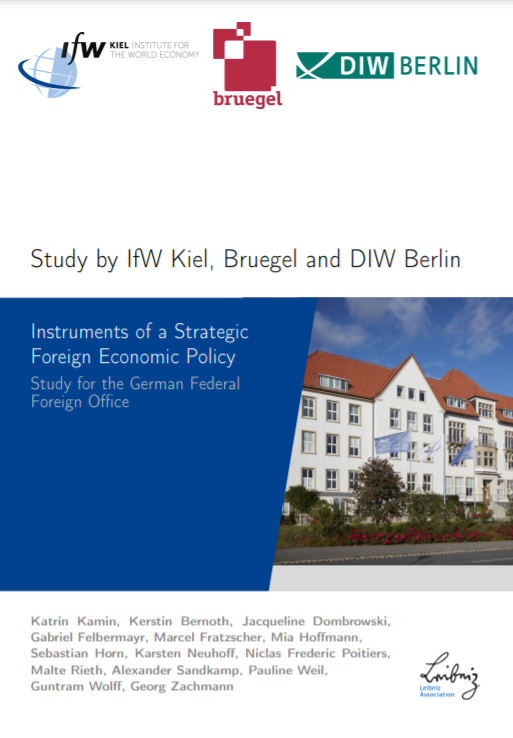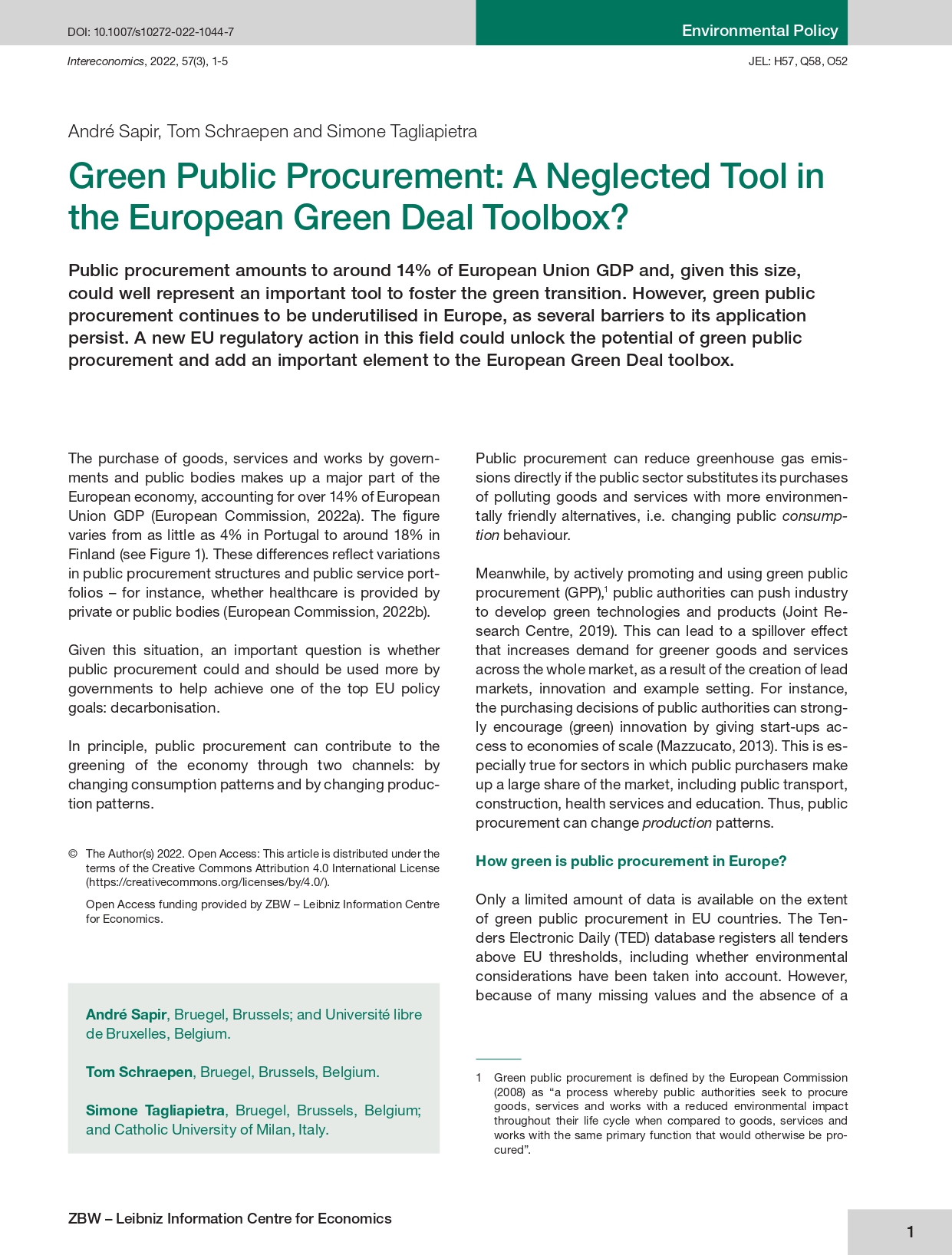Book/Special report
Instruments of a strategic foreign economic policy
Study for the German Federal Foreign Office produced by Bruegel, the Kiel Institute for the World Economy and DIW Berlin.
The Kiel Institute for the World Economy, DIW Berlin and Bruegel thank the German Federal Foreign
Office for funding this study. The views expressed are those of the authors.
The separation of security and economic objectives in foreign policy, which was often sought in international political issues in the past, has outlived its usefulness. The transition to a more power-based order can be felt around the world. International economic instruments and agreements are increasingly used to achieve various foreign policy goals. These are simultaneously used to promote own political interests, sometimes to the detriment of partner countries. This “weaponised interdependence” makes it necessary for Germany and the European Union to assess their vulnerabilities and to design their own defensive and offensive strategies.
Bruegel lead by the Kiel Institute for the World Economy, together with DIW Berlin, has produced a study on behalf of the Federal Foreign Office that addresses the objectives, instruments, and trade-offs of a strategic foreign economic policy and describes how to deal with them in the context of German and European policy making.











